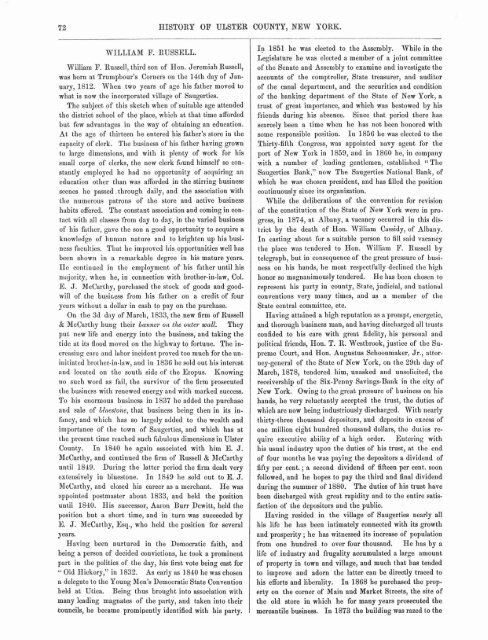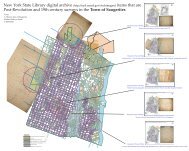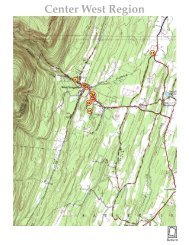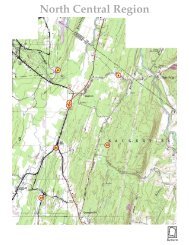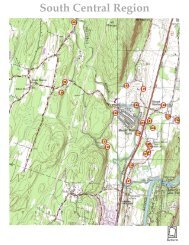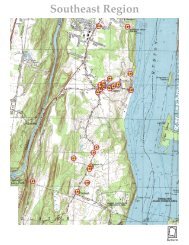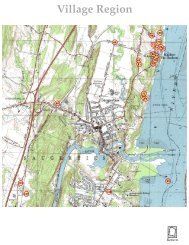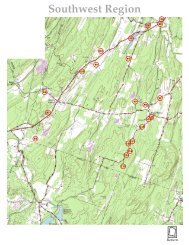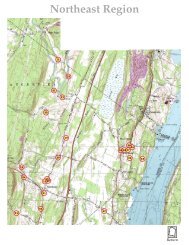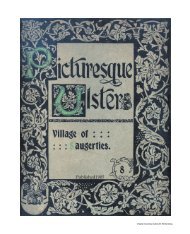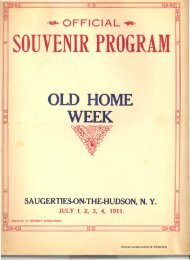1880 History of Ulster County New York - Saugerties Section
The 1880 History of Ulster County compiled by Nathaniel Bartlet Sylvester was one of a number of advanced subscription vanity publications centered on county-based histories produced by Sylvester. The information basically duplicates the gazettes, commercial white papers and census records of the day and utilized the writing skills of reporters in the local press who gathered their research directly from the wealthy businessmen that paid the subscription. Saugerties had a wealth of information already collected from The Pearl published five years earlier and has the most pages of any town in this volume. This history is the predecessor to later studies by Benjamin Myer Brink and Alfonso Clearwater as well as Marius Schoonmaker after the turn of the century. When all of these are taken together and discounted for the lack of accurate translation of the earliest Dutch and German documents the result is a history of the Kingston territory of the mid Hudson valley generally referred to as the Kingston Commons. Interest in this larger history is the natural outcome of a reading of this history of Saugerties.
The 1880 History of Ulster County compiled by Nathaniel Bartlet Sylvester was one of a number of advanced subscription vanity publications centered on county-based histories produced by Sylvester. The information basically duplicates the gazettes, commercial white papers and census records of the day and utilized the writing skills of reporters in the local press who gathered their research directly from the wealthy businessmen that paid the subscription. Saugerties had a wealth of information already collected from The Pearl published five years earlier and has the most pages of any town in this volume.
This history is the predecessor to later studies by Benjamin Myer Brink and Alfonso Clearwater as well as Marius Schoonmaker after the turn of the century. When all of these are taken together and discounted for the lack of accurate translation of the earliest Dutch and German documents the result is a history of the Kingston territory of the mid Hudson valley generally referred to as the Kingston Commons.
Interest in this larger history is the natural outcome of a reading of this history of Saugerties.
Create successful ePaper yourself
Turn your PDF publications into a flip-book with our unique Google optimized e-Paper software.
72 HISTORY OF ULSTER COUNTY, NEW PORK.<br />
WILLIAM P. RUSSELL.<br />
William F. Russell, third son <strong>of</strong> Hon. Jeremiah Russcll,<br />
was born at Trumpbour's Cornerv on the 14th day <strong>of</strong> January,<br />
1812. When two years <strong>of</strong> age his father moved to<br />
what is now the incorporated village <strong>of</strong> <strong>Saugerties</strong>.<br />
The subject <strong>of</strong> this sketch when <strong>of</strong> suitable age attended<br />
the district school <strong>of</strong> the place, which at that time afforded<br />
but few advantages in the way <strong>of</strong> obtaining an education.<br />
At the age <strong>of</strong> thirteen he entered his father's store in the<br />
capncity <strong>of</strong> clerk. The business <strong>of</strong> his father having grown<br />
to large dimensions, and with it plenty <strong>of</strong> work for his<br />
small corps <strong>of</strong> clerks, the new clerk found himsclf so aonstantly<br />
employed he had no opportunity <strong>of</strong> acquiring an<br />
education other than was afforded in the stirring bnsinesv<br />
scenes he passed,through daily, and the association with<br />
the numerous patrons <strong>of</strong> the store and active business<br />
habits <strong>of</strong>fered. The constant association and coming in contact<br />
with all classes from day to day, in the varied business<br />
<strong>of</strong> his fiatlier, gave the son a good opportunity to acquire a<br />
knowledge <strong>of</strong> human nat~lre and to brighten up his business<br />
faculties. That he improved his opportunities well has<br />
been shown in a remarkable degree in his mature years.<br />
IIc continued in the employment <strong>of</strong> his father until his<br />
nliljority, when he, in connection with brother-in-law, Col.<br />
E. J. McCarthy, purchased the stock <strong>of</strong> goods and goodwill<br />
<strong>of</strong> the busir.ess from his father on a credit <strong>of</strong> four<br />
years without a dollar in cash to pay on the purchase.<br />
On the 3d day <strong>of</strong> March, 1833, the new firm <strong>of</strong> Russell<br />
& McCarthy hung their banner. orz the o2iter wall. They<br />
put new life and cnerFy into the business, and taking the<br />
tide at its flood moved on the highray to fortune. The increasing<br />
care and labor incident proved too much for the uninitiated<br />
brother-in-law, and in 1836 he sold out his intercst<br />
and located on the south side <strong>of</strong> the E~opus. Knowing<br />
110 such word as fail, the survivor <strong>of</strong> the firm prosecuted<br />
the business with rencwed energy and with marked success.<br />
To his enormous business in 1837 he added the purchase<br />
and sale <strong>of</strong> bluesfone, that business being then in its infancy,<br />
and which has so largely added to the wealth and<br />
importance <strong>of</strong> the town <strong>of</strong> <strong>Saugerties</strong>, and which has at<br />
the present time reached such fabulous dimensions in <strong>Ulster</strong><br />
<strong>County</strong>. In 1840 he again associated with him E. J.<br />
BIcCarthy, and continued the firm <strong>of</strong> Russell & NcCarthy<br />
until 1849. During the latter period the firm dcalt very<br />
extensively in bluestone. In 1849 he sold out to E. J.<br />
RIcCarthy, and closed his career as a merchant. He was<br />
appointed postmaster about 1833, and held the position<br />
until 1840. His successor, Aaron Burr Dewitt, held the<br />
position but a short time, and in turn was succeeded by<br />
E. J. McCarthy, Esq., who held the position for several<br />
years.<br />
Having been nurtured in the Democratic faith, and<br />
being a person <strong>of</strong> decided convictions, he took a prominent<br />
part in the politics <strong>of</strong> the day, his first vote being cast for<br />
'; Old Hickory," in 1832. As early as 1840 he was chosen<br />
a delegate to the Young Men's Democratic State Convention<br />
held at Utica. Being thus brought into associatioli with<br />
many leading magnates <strong>of</strong> the pnrty, and taken into their<br />
councils, he became promipently identified with his party.<br />
In 1851 he was elected to the Assembly. While in the<br />
Legislature he was elected a member <strong>of</strong> a joint committee<br />
<strong>of</strong> the Senate and Assembly to examine and investigate the<br />
accounts <strong>of</strong> the comptroller, State treasurer, and auditor<br />
<strong>of</strong> the canal department, and the securities and condition<br />
<strong>of</strong> the banking department <strong>of</strong> the State <strong>of</strong> <strong>New</strong> <strong>York</strong>, a<br />
trust <strong>of</strong> great importance, and which was bestowed by his<br />
friends during his absence. Since that period there has<br />
scarcely been a time when he has not been honored with<br />
some responsible position. In 1856 he was elected to the<br />
Thirty-fifth Congress, was appointed navy agent for the<br />
port <strong>of</strong> <strong>New</strong> <strong>York</strong> in 1859, and in 18GO he, in company<br />
with a number <strong>of</strong> leading gentlemen, established " The<br />
<strong>Saugerties</strong> Bank," now The <strong>Saugerties</strong> National Bank, <strong>of</strong><br />
which he was chosen president, and has fillcd the position<br />
corltinuously since its organization.<br />
While the deliberations <strong>of</strong> the convention for revision<br />
<strong>of</strong> the constitution <strong>of</strong> the State <strong>of</strong> <strong>New</strong> <strong>York</strong> were in progress,<br />
in 1874, at Albany, a vacancy occurred in this district<br />
by the death <strong>of</strong> Hon. IVilliam Cassidy, <strong>of</strong> Albany.<br />
In casting about for a suitable person to fill said vacancy<br />
the place was tendered to Hon. Willin~n P. Husscll by<br />
telegraph, but in consequence <strong>of</strong> the great pressure <strong>of</strong> business<br />
on his hands, he most respectfully declined the high<br />
honor so magnanimously tendered. He has bccn chosen to<br />
represent his party in county, State, judicial, nnd national<br />
conventions very Inany times, and as a member <strong>of</strong> tlie<br />
State central committee, etc.<br />
Having attained a high reputation as a prompt? energetic,<br />
and thorough business man, and having dischargcd all trusts<br />
confided to his care with great fidelity, his persolla1 and<br />
political friends, Hon. T. R. Wcstbrook, justice <strong>of</strong> tlie Supreme<br />
Court, and Hon. Augustus Schooomaker, Jr., nttorney-gcneral<br />
<strong>of</strong> the State <strong>of</strong> <strong>New</strong> <strong>York</strong>, on the 29th day <strong>of</strong><br />
March, 1878, tendered him, unasked and unsolicited, the<br />
receivership <strong>of</strong> the Six-Penny Savings-Bank in the city <strong>of</strong><br />
<strong>New</strong> <strong>York</strong>. Owing to the great prcesure <strong>of</strong> business on his<br />
hands, he very reluctantly accepted the trust, the duties <strong>of</strong><br />
which are now being industriously discharged. With nearly<br />
thirty-three thousand depositors, and dcposits in excess <strong>of</strong><br />
one million eiiht hundred thousand dollars, thc duties require<br />
executive ability <strong>of</strong> a high ordcr. Entering with<br />
his usual industry upon the duties <strong>of</strong> his trust, at the end<br />
<strong>of</strong> four months he was paying the depositors a dividend <strong>of</strong><br />
fifty per cent.; a second dividend <strong>of</strong> fifteen per cent. soon<br />
followed, and he hopes to pay tlie third and final dividend<br />
during the summer <strong>of</strong> <strong>1880</strong>. The duties <strong>of</strong> his trust have<br />
been discharged with great rapidity and to the entire satisfaction<br />
<strong>of</strong> the dcpositors and the public.<br />
Having resided in the village <strong>of</strong> <strong>Saugerties</strong> nearly all<br />
his lifc he has been intimately connected with its growth<br />
and prosperity; he has witnessed its increase <strong>of</strong> population<br />
from one hundred to over four thousand. He has by a<br />
life <strong>of</strong> industry and frugality accumulated a large amount<br />
<strong>of</strong> property in town and village, and much that has tended<br />
to improve and adorn the latter can be directly traced to<br />
his efforts and liberality. In 1868 he purchased the property<br />
on the corner <strong>of</strong> Main and Market Strcets, the site <strong>of</strong><br />
the old store in wliich he for many years prosecuted the<br />
mercantile businem. In 1873 the building was razed lo the


